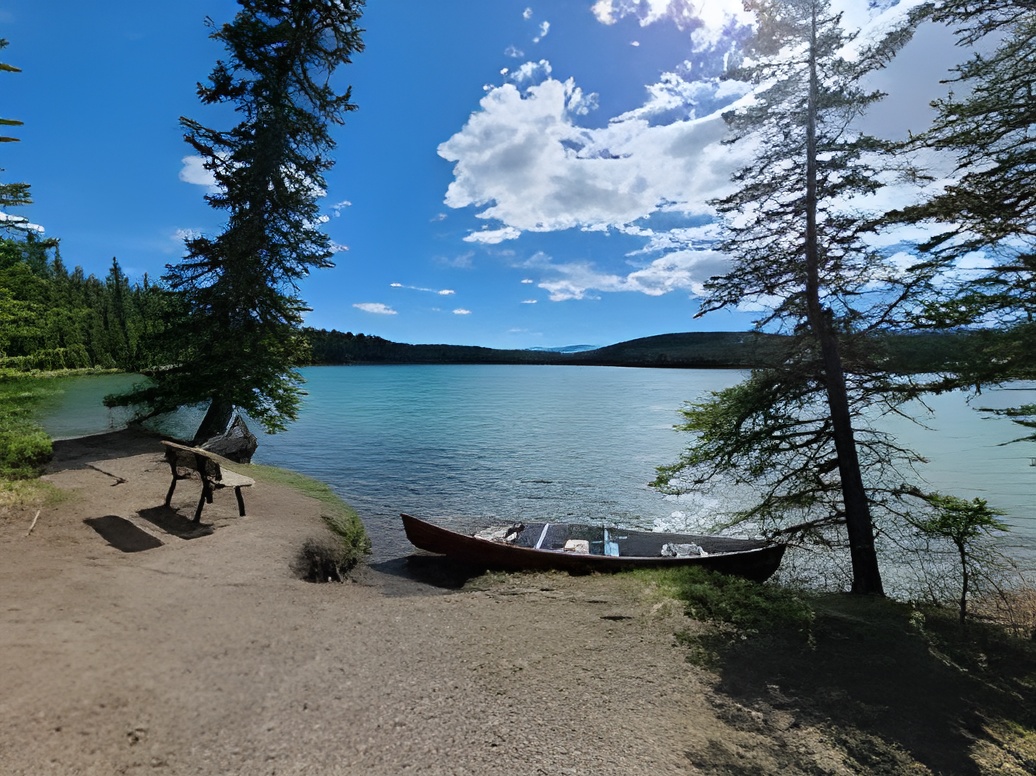In the vast prairie heartland of Alberta lies a tranquil retreat that escapes the attention of many travelers: Little Fish Lake Provincial Park. Located about 35 kilometers east of Drumheller, this lesser-known gem offers a raw and authentic outdoor experience. With its expansive skies, peaceful lakeshore, and diverse wildlife, the park is a haven for those looking to unplug and immerse themselves in nature.
Whether you are a camper, a nature photographer, a birdwatcher, or someone simply seeking solitude, Little Fish Lake offers something rare and special. This blog post provides everything you need to know to plan your visit, including detailed camping tips, what wildlife to expect, the best time to go, and practical travel advice.
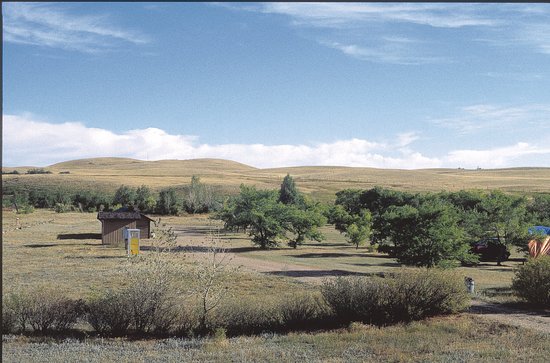
A Prairie Paradise: Overview of Little Fish Lake Provincial Park
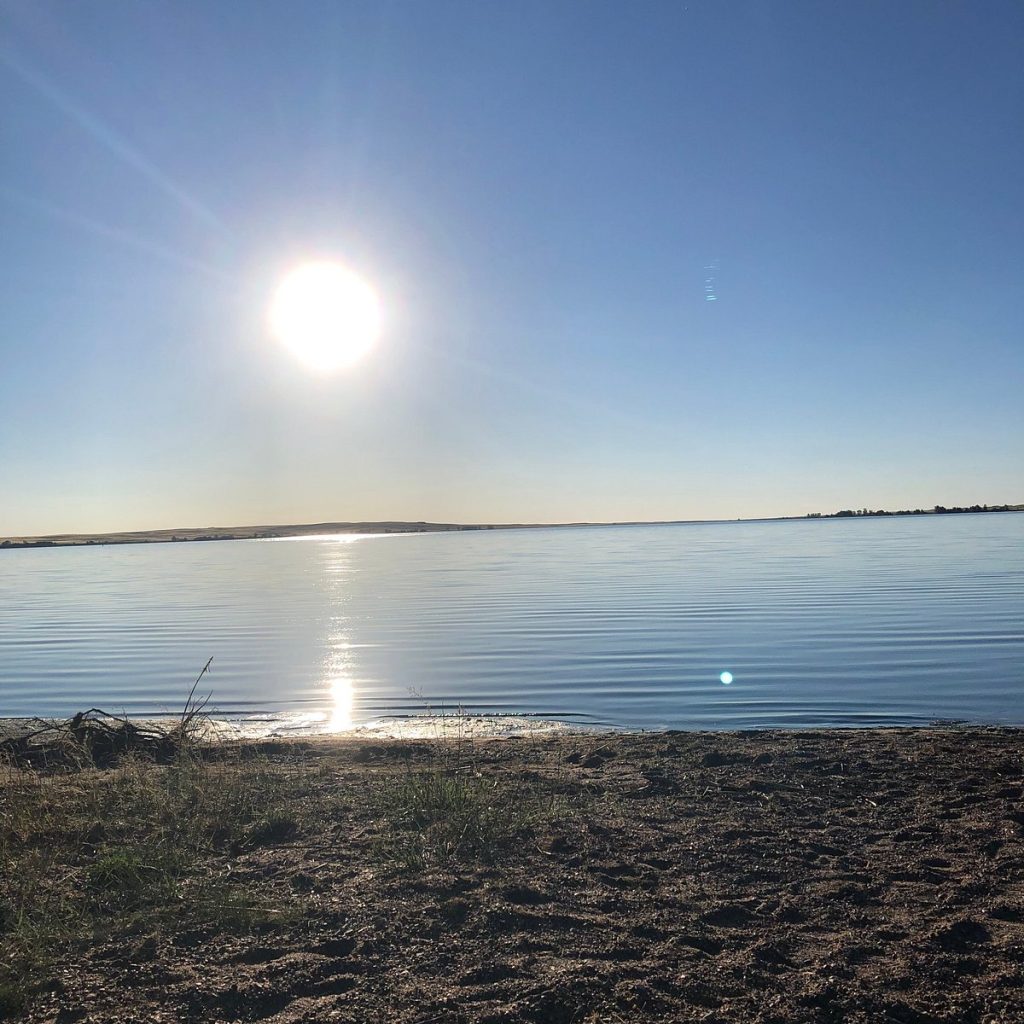
Established in 1957, Little Fish Lake Provincial Park spans roughly 4.4 square kilometers in Alberta’s Starland County. Unlike more commercialized parks, it remains largely undeveloped, which is a significant part of its charm. The park centers around Little Fish Lake—a small, shallow, and somewhat salty body of water surrounded by prairie grasslands and a few clusters of aspen and poplar.
This park represents a rare glimpse into Alberta’s prairie lake ecosystems. Its alkaline waters and sparse tree coverage give it an open, wind-swept feel, making it an ideal location for prairie photography and uninterrupted nature viewing. The remote setting and minimal facilities help preserve the peaceful ambiance, ensuring visitors can enjoy the natural landscape in its rawest form.
The park’s proximity to Drumheller—famous for its dinosaur fossils and badlands terrain—makes it an excellent addition to a road trip in the region. There are no formal trails or interpretive programs here, which adds to the off-the-grid appeal. Instead, visitors are encouraged to explore, observe, and appreciate the untamed scenery at their own pace. Whether you’re sketching under the wide sky or sitting quietly by the water’s edge, this park offers a deeply peaceful experience.
Camping at Little Fish Lake: What to Expect
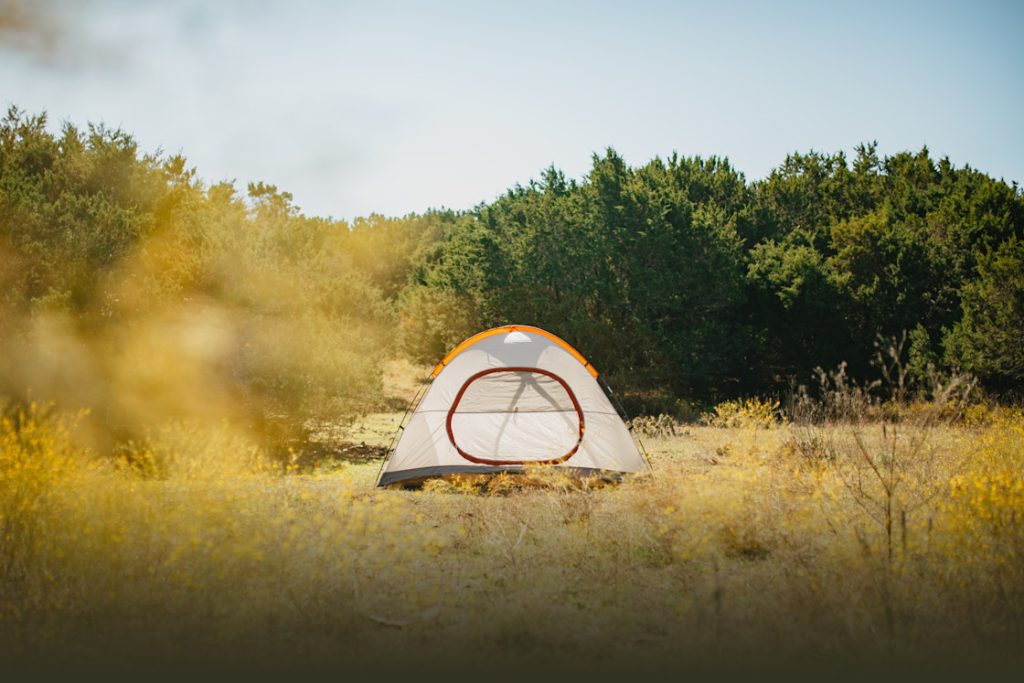
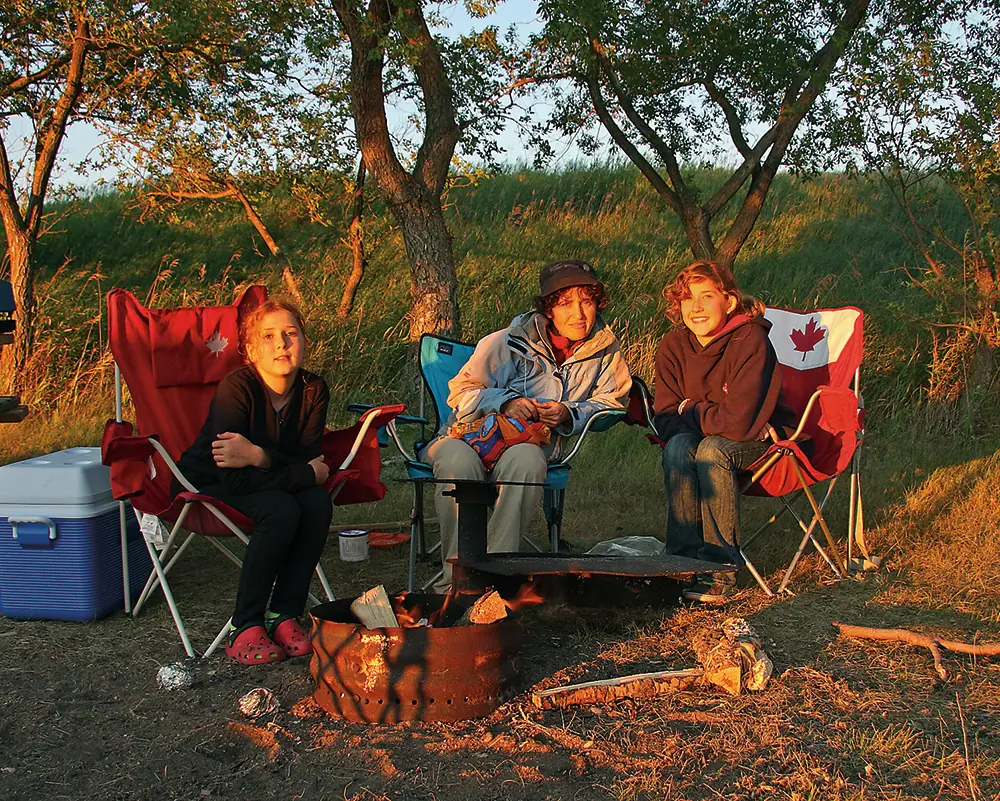
Camping at Little Fish Lake Provincial Park is a return to simplicity. The campground features approximately 15 unserviced campsites, available on a first-come, first-served basis. Unlike more modern campgrounds with powered sites, showers, or flush toilets, this park provides only the essentials: pit toilets, picnic tables, and fire pits.
There is no potable water, no Wi-Fi, and no cell service—making it the ideal place for digital detox. Visitors must bring everything they need, including drinking water, food, firewood, cooking equipment, and waste bags. It’s important to follow a Leave No Trace ethic, as there are no garbage bins in the park.
The trade-off for the minimal amenities is pure tranquility. With so few visitors at any given time, the park feels like your own private escape. You can set up camp just meters from the lake, fall asleep to the sound of prairie winds, and wake to birdsong echoing across the grasslands.
The park is open seasonally, generally from mid-May to early September. Because it doesn’t take reservations, it’s best to arrive early on weekends or holidays. Despite its simplicity, the campground offers incredible value for those who want to reconnect with nature in a low-impact, meaningful way.
Wildlife and Birdwatching: A Prairie Sanctuary
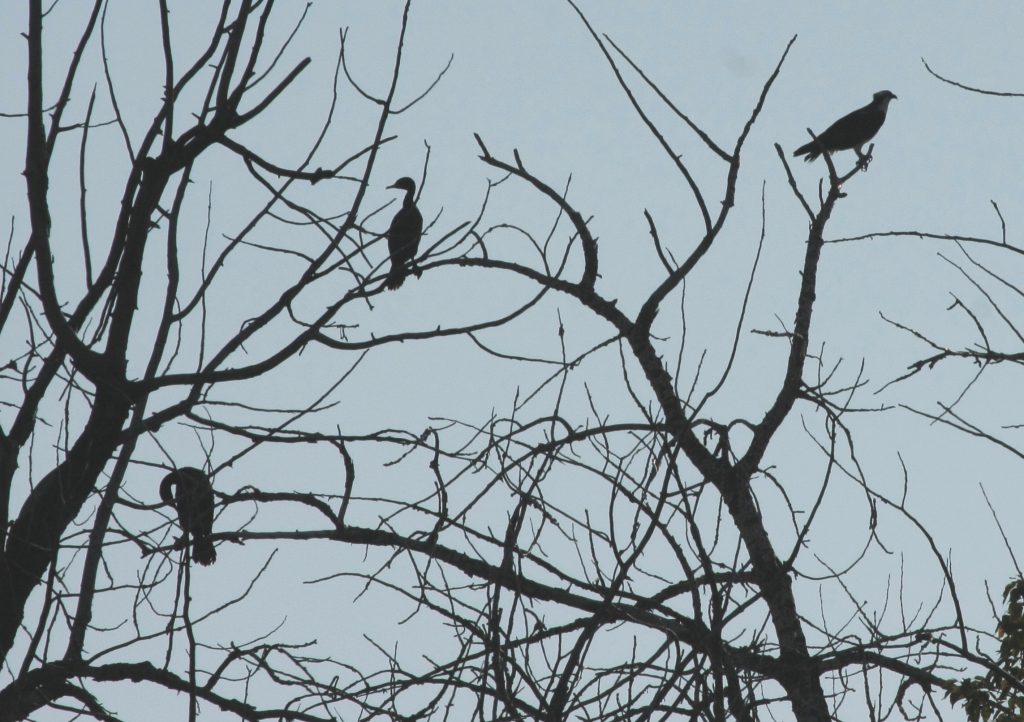
Little Fish Lake Provincial Park is a hidden haven for wildlife enthusiasts and birdwatchers. The park lies along a major migratory flyway, making it an important stop for many bird species in spring and fall. During the warmer months, you can witness nesting, feeding, and social behaviors up close.
Some common birds include:
- American Coots
- White Pelicans
- Mallards and Pintails
- Canada Geese
- Red-Winged Blackbirds
- Meadowlarks
- Cliff Swallows
The shallow lake and surrounding prairie grasses provide excellent habitat for aquatic and ground-nesting birds. Mornings and evenings are the best times to observe bird activity. If you’re into bird photography or wildlife journaling, bring a long lens, a notebook, and plenty of patience.
In addition to birds, the park is home to prairie mammals like Richardson’s ground squirrels, foxes, mule deer, and coyotes, whose howls often echo across the lake at night. You may also spot reptiles and amphibians near the water’s edge.
Because the park is so quiet and receives minimal traffic, the wildlife here is often bolder and more visible than in more populated parks. It’s the perfect place to immerse yourself in Alberta’s lesser-known ecosystem.
Fishing and Water Activities at Little Fish Lake
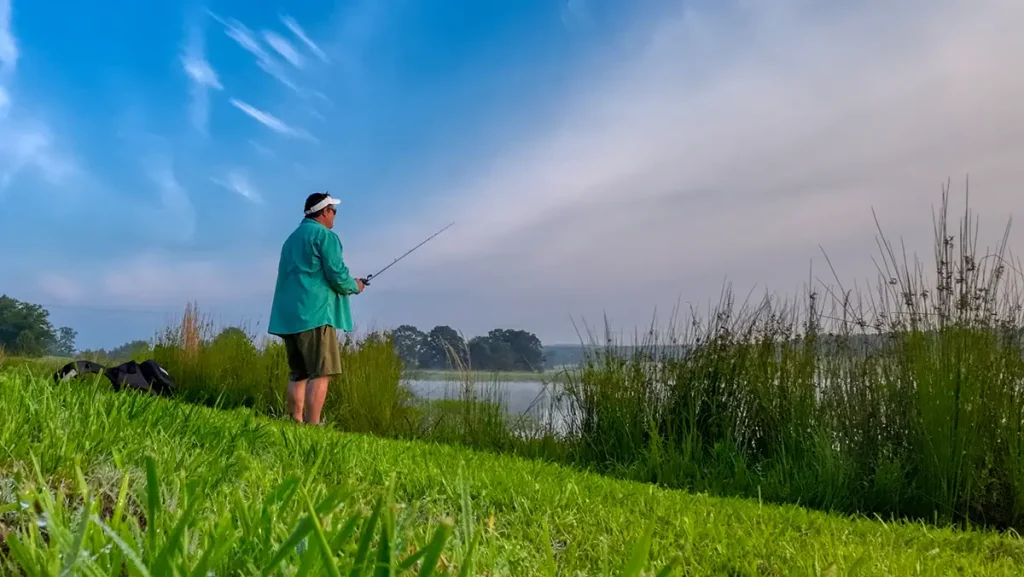
Fishing is one of the most popular activities at Little Fish Lake. Despite the lake’s small size and salinity, it supports a modest population of Northern Pike and Yellow Perch. Conditions can vary yearly based on water levels, but many visitors report successful, peaceful fishing experiences—especially from shore or by canoe.
Before casting your line, be sure to review the latest Alberta Fishing Regulations and obtain a valid license. Seasonal limits and rules apply, and because this is a fragile ecosystem, ethical fishing practices are essential.
Aside from fishing, non-motorized boating is permitted on the lake. Visitors often bring kayaks, canoes, or inflatable rafts to paddle across the calm waters. While swimming is not recommended due to the lake’s alkaline nature and shallow depth, floating on the water or enjoying a quiet paddle under the prairie sun is deeply relaxing.
There is a small, rustic gravel boat launch near the campsites. Just remember to pack out everything you bring in—there are no rental shops or equipment services available. The stillness of the water and the surrounding natural beauty make boating here an almost meditative experience.
Best Time to Visit Little Fish Lake Provincial Park
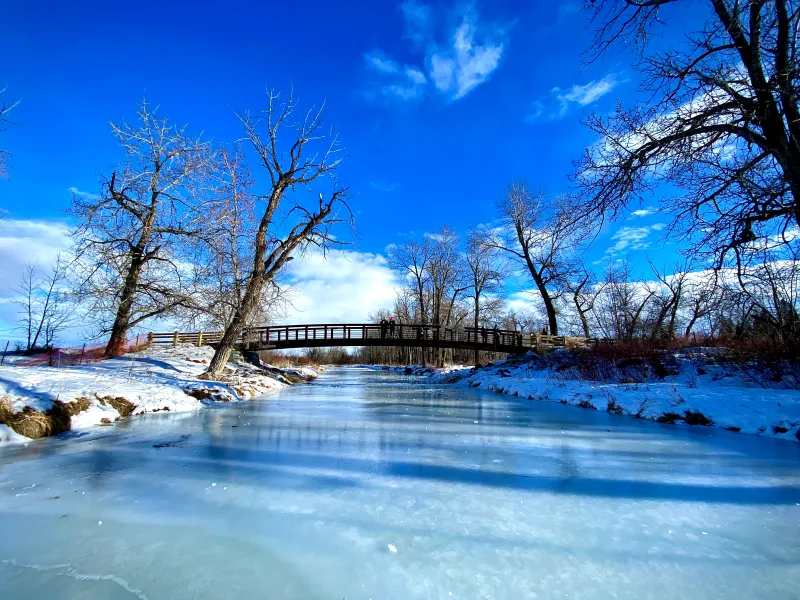
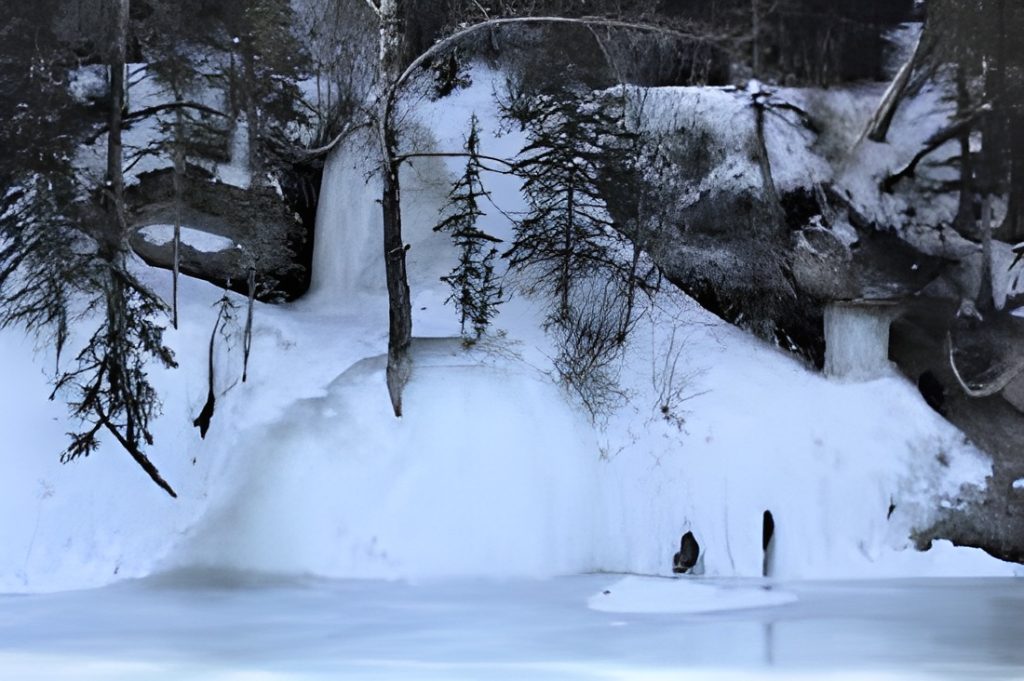
The best time to explore Little Fish Lake Provincial Park is between late May and early September, when the weather is warm, and the park is fully open to visitors. This period offers the most comfortable conditions for camping, fishing, and wildlife viewing.
June is particularly special. The prairie wildflowers are in full bloom, and the birdlife is abundant with nesting and migratory activity. The days are long, giving you ample time to explore and relax.
By July and August, the landscape becomes drier, and winds may pick up. It’s important to stay hydrated and use sun protection. Despite the heat, these months are great for fishing and quiet evenings by the campfire. The skies are often clear, making for excellent stargazing.
Early September offers cooler weather and the beautiful golden hues of late-summer grasses. However, the park begins to shut down its facilities mid-month, and early frosts are possible.
Avoid visiting in winter or early spring, as the park is not maintained, and access can be difficult. Snow and ice can make the gravel roads impassable, and there are no winter services. For the best experience, aim for a summer visit.
How to Get There and What to Bring

Little Fish Lake Provincial Park is located about 35 km east of Drumheller, Alberta. From Drumheller, take Highway 10 east, then turn south onto Range Road 122A. Continue along gravel roads until you see signs for the park. The road conditions can vary, so it’s wise to check ahead if the weather has been rainy.
Because there are no stores, gas stations, or services at the park, it’s critical to come prepared. Here’s a checklist of what to bring:
- Ample drinking water (no potable water on site)
- Camping supplies (tent, sleeping bags, cookware, stove)
- Bug spray and sunscreen
- First-aid kit and medication
- Warm and cool weather clothing
- Fishing gear and valid license
- Binoculars and wildlife guidebooks
- Firewood and matches
- Garbage bags for all waste
- Offline map or GPS device
Your last chance to fill up on fuel, food, and supplies is in Drumheller. Pack as if you’re visiting a backcountry site—you’ll thank yourself later.
Final Thoughts: Why Visit Little Fish Lake Provincial Park?
Little Fish Lake Provincial Park isn’t for everyone. It’s not flashy, commercial, or full of amenities. But that’s exactly what makes it special. It’s a place where the only sound is the wind through grass, the calls of distant birds, or the gentle splash of a paddle.
For those who appreciate solitude, open landscapes, and the therapeutic effects of being off-grid, this park is a sanctuary. It offers a glimpse into Alberta’s prairie roots and delivers a unique outdoor experience that modern life rarely allows.
Whether you come to fish, birdwatch, stargaze, or simply unwind, Little Fish Lake rewards you with peace, perspective, and a renewed connection with nature. It’s the perfect reminder that some of the best places are the ones no one’s talking about.

